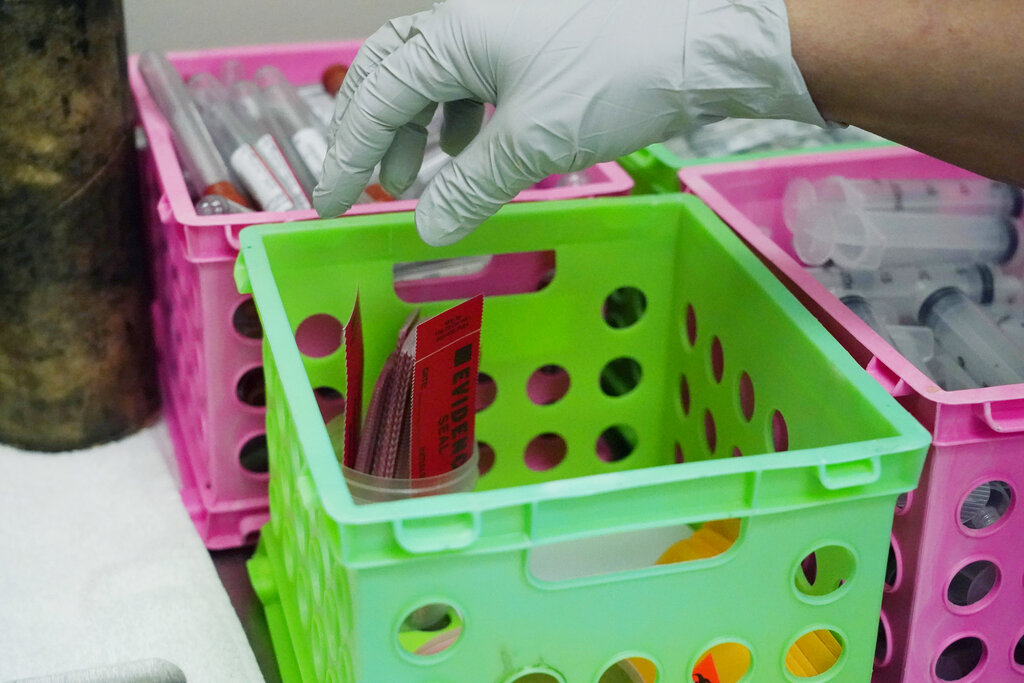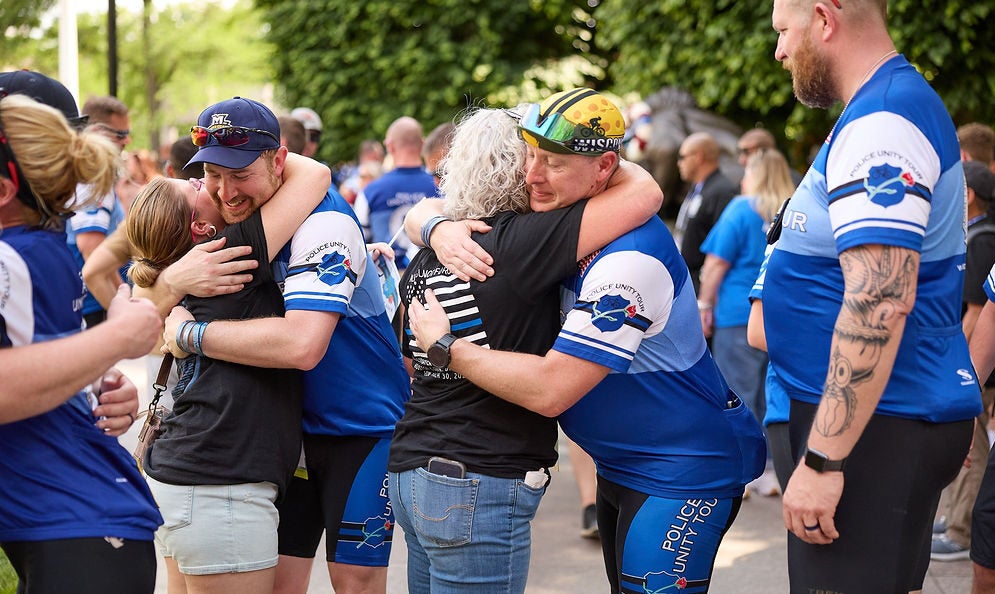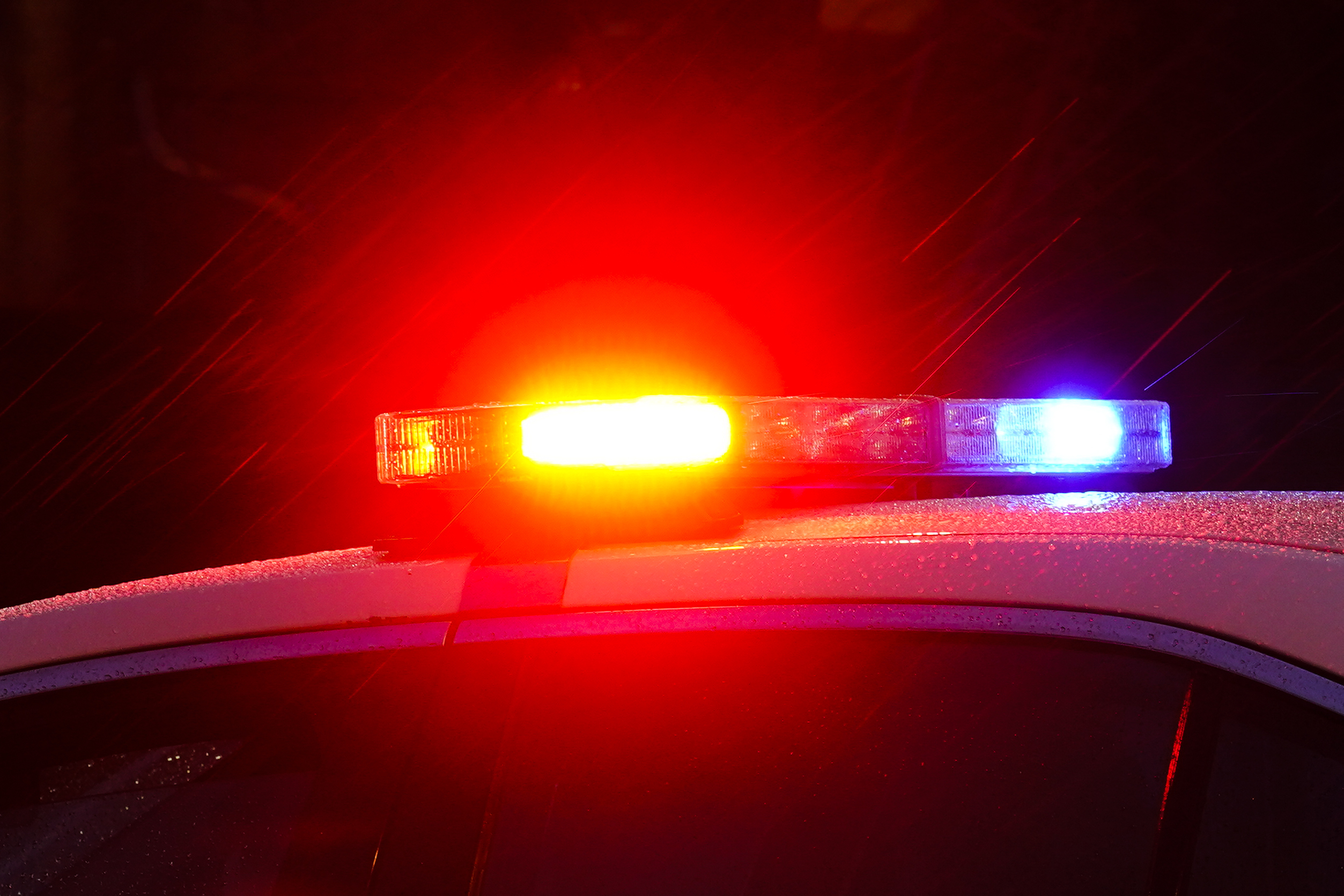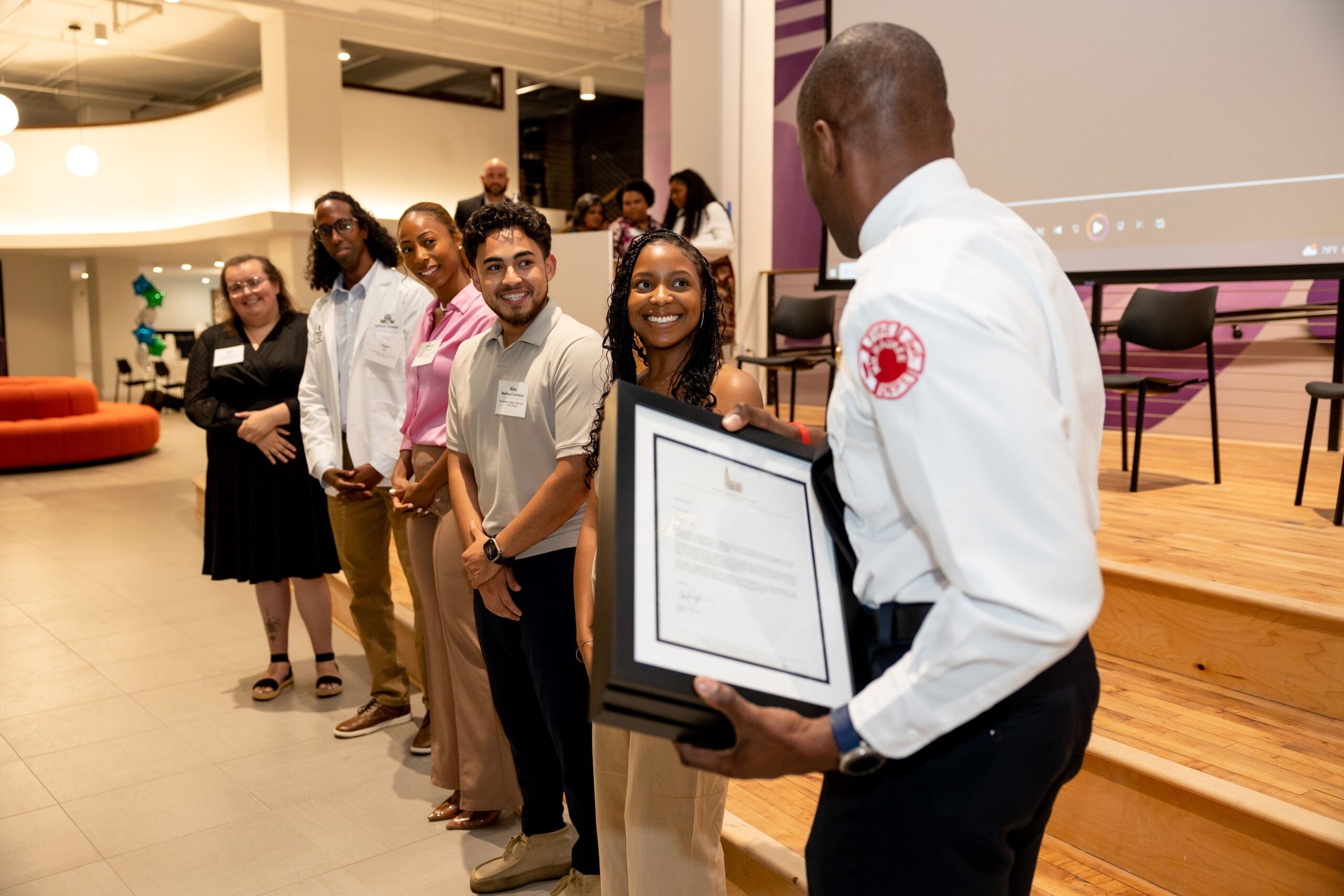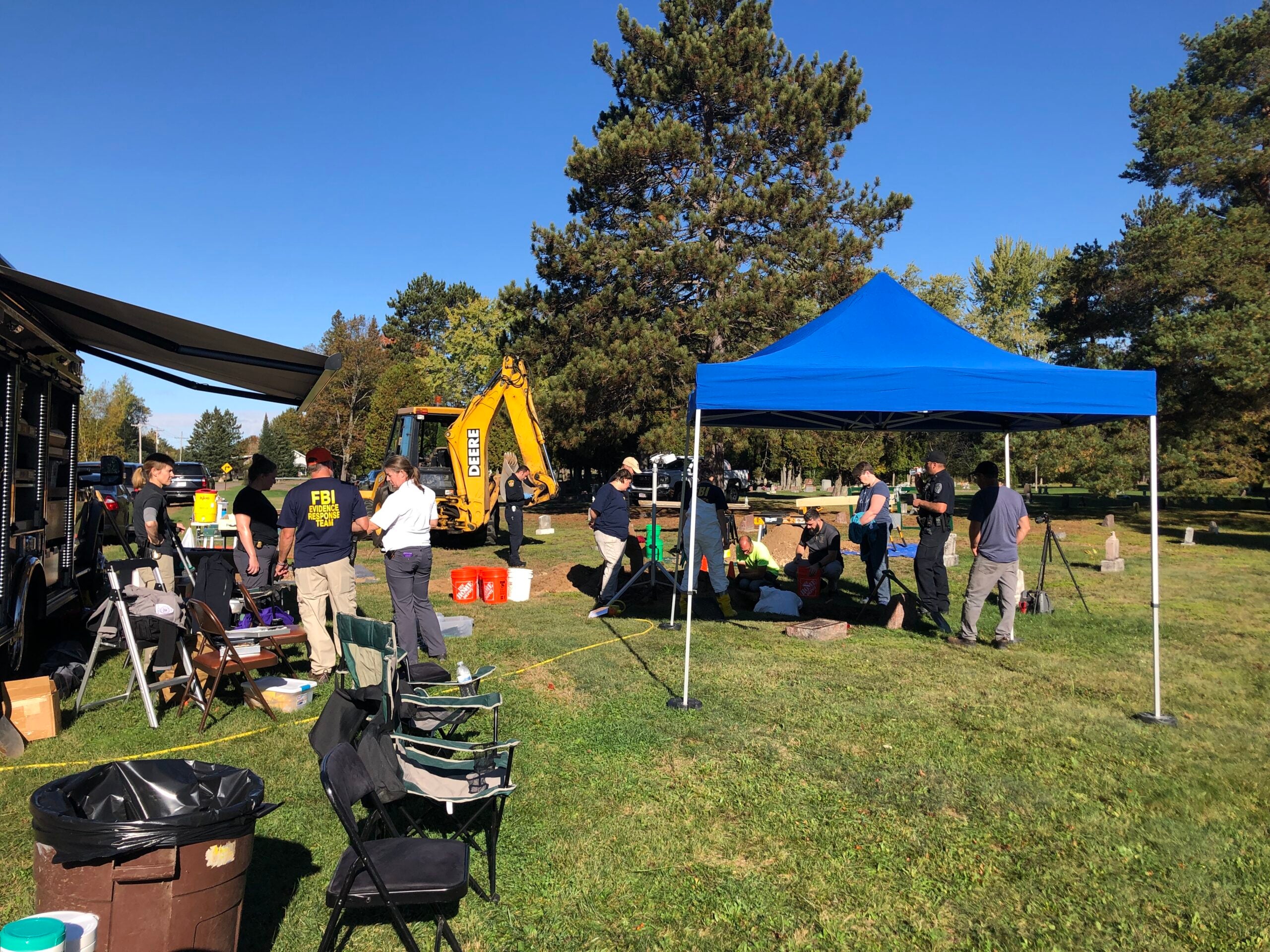A long-awaited regional forensic science center set to open later this year is expected to revolutionize death investigations in central and northern Wisconsin, eliminating the need for police and medical examiners to travel hundreds of miles for autopsies.
Currently, law enforcement and medical examiners must travel to facilities in southeastern Wisconsin, losing valuable time and resources in the process. The new forensic science center will change that by providing a state-of-the-art local facility, reducing delays and offering critical support for grieving families.
Marathon County Administrator Lance Leonhard spoke with WPR’s Shereen Siewert about the new center. He said the facility will improve efficiency in death investigations and serve as a training hub for forensic professionals.
Stay informed on the latest news
Sign up for WPR’s email newsletter.
Beyond its role in forensic investigations, the center will also facilitate tissue donation services, filling a critical gap in northern Wisconsin.
The project, in development since 2017, is a partnership with North Central Technical College and the Medical College of Wisconsin and will offer hands-on educational opportunities for nursing students, surgical technicians, prosecutors and law enforcement.
“We are striving to make this facility more than a morgue, to really offer those opportunities whether you’re just starting your education or you’re in the career field right now and looking for that continuing education,” Leonhard told Siewert, on “Morning Edition.” “There are all sorts of educational opportunities that this facility will permit.”
With the region’s first forensic pathologist set to begin work in August, Marathon County is preparing for the center’s rollout. Initially, it will focus on handling local cases while refining operational procedures, with the goal of accepting cases from surrounding counties soon after.
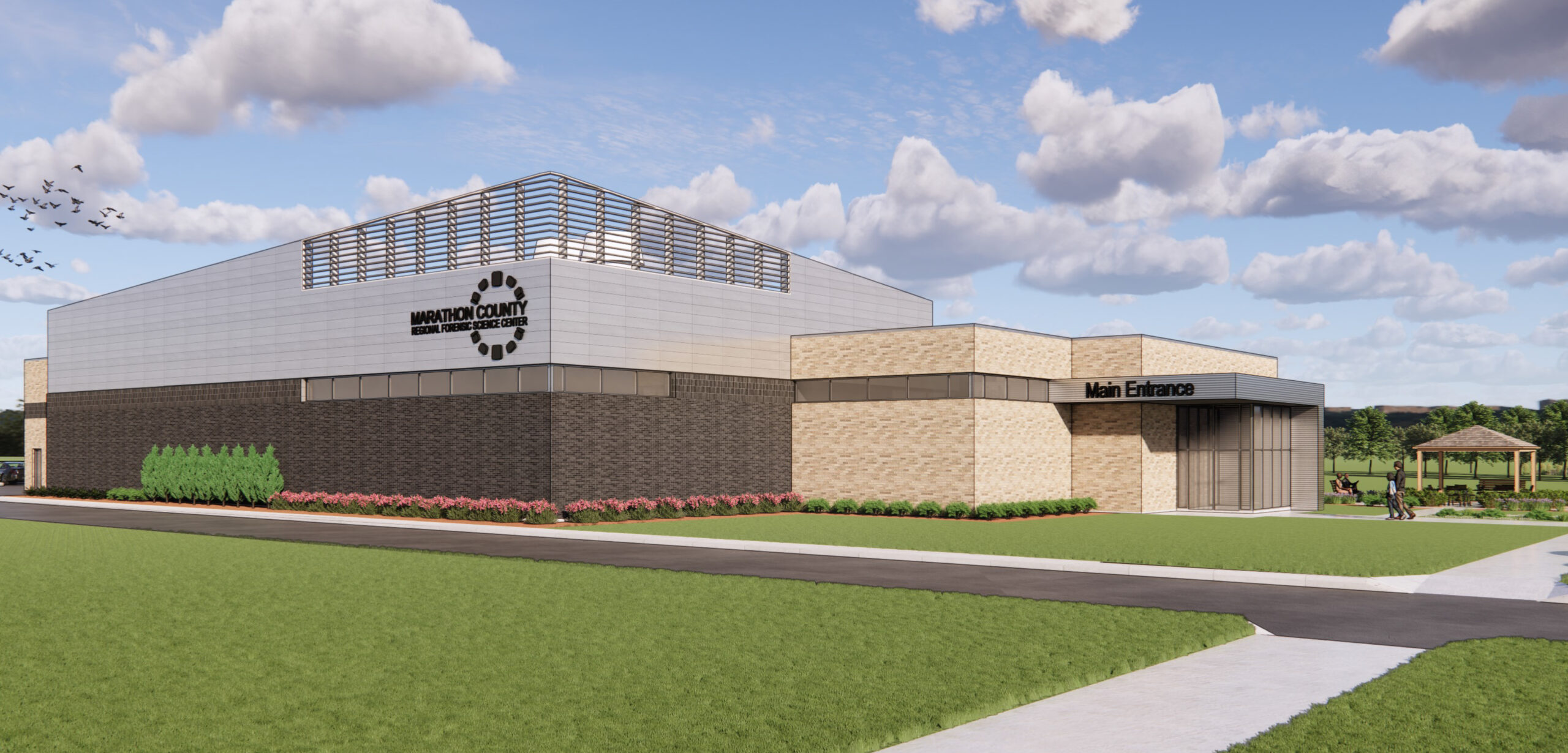
The following interview was edited for brevity and clarity.
Shereen Siewert: How far do Wausau-area investigators now have to travel for forensic autopsies?
Lance Leonhard: Our staff currently has to travel to southeastern Wisconsin.
If things are good and we’re able to get into the closest facility that we have to procure a forensic autopsy, we’re traveling all the way to Fond du Lac. We sometimes need to travel to Dane County to the University of Wisconsin system to have those autopsies performed.
What that means is not only that our medical examiner staff or death investigators are traveling out of the county and essentially spending an entire day outside of our service area, but also local law enforcement.
Listen to “Wisconsin Today,” where a Wisconsin medical examiner talks about chronic shortages in medical examiners’ and coroners’ offices.
So, it’s been a challenge. Since 2017, our county has been looking at whether there is a way to do this better, and we’re very excited about the future of opening our regional forensic science center later this year.
SS: I understand the facility is also designed to support grieving families. What grief support services are you envisioning?
LL: First and foremost, I think one of the things we always need to remember is that the families that we deal with are going through some of the most traumatic experiences you can imagine, the unexpected loss of a loved one.
This facility is going to bring a more timely resolution to a lot of the questions that they might have to help them understand that situation and allow them to get those answers without having to leave the community. They won’t have to travel to Dane County or to Fond du Lac or to Milwaukee. They’re going to get those answers here and get that local support.
They’ll have the opportunity to be counseled by our staff and have those timely resolutions.
I also think that we’re being very intentional with the design of the center to create spaces where families that come to visit us, whether it’s for a body viewing or having a conversation with one of our investigators or pathologists, have a space that is as warm and comforting as it can be.
SS: Tissue donation is another component of this center. How will that work?
LL: We’re very fortunate in Wisconsin because a majority of the individuals in the state are tissue donors. But there are not enough tissue donation spaces that are readily available for that throughout the state.
When we think about the fact that any one individual who is a tissue donor has the opportunity to impact, in a very positive way, more than 50 people, anything we can do to expand that access will pay a lot of dividends for the people and medical providers in our community.
Our facility will provide that space. We’re working to partner with tissue procurement entities to make sure that when those opportunities arise, we can maximize them.
SS: The partnership with North Central Technical College and the Medical College of Wisconsin is a unique aspect of this project. How will this collaboration work in practice?
LL: When the task force started back in 2017 and really dove into this issue, we found it involved much more than just delivering core government services like death investigations and autopsies. We found that the system itself had some institutional barriers, and education and availability of forensic pathologists are examples.
That got us thinking about how we could create a facility that supports a system of education to expand opportunities for the next generation of forensic pathologists.
Working with the Medical College will allow those opportunities, by expanding physician access and getting people interested in the field.
North Central Technical College and UW both have nursing programs. We envision allowing those on-site educational opportunities for medical careers, whether it’s surgical technology, nursing, you name it. We’re hoping to work with NTC and the UW to allow that hands-on opportunity that doesn’t exist right now.
I’m a former prosecutor and I had to handle cases where autopsies were commonplace for evidence. This is a great opportunity to have this type of facility to help educate prosecutors, emergency medical service providers and law enforcement.
SS: This project has been a long time in the making. What are you hearing from local law enforcement, healthcare providers, prosecutors and the community as a whole?
LL: I think we’re very fortunate. Everyone’s very excited. There are only a handful of counties in the state that offer this service, and they’re all in the southeastern part of the state, though Brown County has one.
We’re going to bring in our first forensic pathologist, who is slated to start in August, and we’re trying to do all the background preparation.
We’re recruiting right now for a chief pathologist and doing as much groundwork as we can before opening later this year. It will have to start slow, with us handling our own internal cases and building our processes to make sure our policies and operations are in place.
If all goes well, we hope to be taking referral counties from surrounding areas soon after. We’ve had interest from almost 30 counties in the state of Wisconsin, in our area, in counties to the north and in Upper Michigan. We’re looking forward to the future.
If you have an idea about something in central Wisconsin you think we should talk about on “Morning Edition,” send it to us at central@wpr.org.
